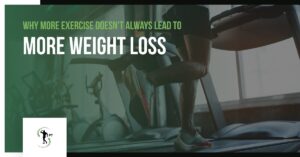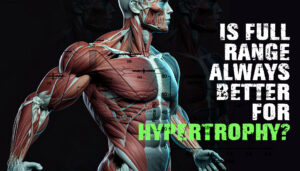Every day am I asked by students, gym rats, and everyday folks about the latest fad diet, the optimal sets and reps scheme, HIIT vs fasted cardio, or which fat burning supplements to take.
I even get asked about anabolic steroids all the time by guys who don’t even train or follow a proper dietary regime.
In the grand scheme none of these things even matter if you are missing the big picture. Even the perfect training or diet plan is not going to produce any results if don’t following it properly, and no amount of supplementation or anabolics will make up for a crappy diet or lack of training.
People typically have a habit of sweating the small details while completely overlooking the big picture. We call this majoring in the minors.
We tend to overcomplicate and stress over small, insignificant details in hope of discovering some secret short cut or magic bullet that’s going to give us a quick fix because deep down we know the basic things that really count require time, effort and dedication.
In reality it’s much simpler than we make it out to be but simple doesn’t mean easy!
The purpose of this article is to open your eyes to what really counts if you really want to get results and are prepared to put the effort in.
If you are going to stress and make cortisol you might as well stress about something that’s going to make a difference.
Im going to keep this simple and narrow both training and nutrition down to the 3 most important and fundamental principles.
If you dont respect these principles first and foremost then everything else is more or less just masturbation. If you enjoy fussing over the small stuff that’s fine, it doesn’t make you a bad person, but if you are serious about getting results then focus on the majors first.
Let start with nutrition first because there are more misconceptions here than with training.
Fundamentals of Nutrition
- Compliance
- Energy Balance
- Protein Intake
Without a doubt the most important factor forgetting results is compliance. If you are unable to stick to your plan 90% of the time then its doomed fail. Who cares if you are following a paleo diet, a keto diet, nutrient timing or any other diet plan for that matter if you are unable to stick to it?
By stick to it don’t mean follow it during the week days then abandon it completely or in part during the weekend. That’s almost guaranteed to get you absolutely nowhere!
The most important driver for which diet plan you should follow is the one most suited to your lifestyle and personal preferences.
Any dietary plan that creates an energy deficit will give you results provided you follow it. Which brings us to the second point.
For fat loss energy balance is king. The caloric model has now been very well validated in recent scientific literature whereas the macro ratio, nutrient timing and food type has been shown to be far less important than we previously believed.
It really makes very little difference how clean you eat, how little carbs or fats you have, or how you time them if you are not in a calorie deficit.
The exception to that is protein which brings us to the next point. Protein is not only the most important macronutrient because it is the building block of all our cells, but it is also offers a metabolic advantage due to its thermogenic properties.
Calorie for calorie protein requires the most energy for digestion compared to the other macros which increases metabolic rate so you can get away with eating more food. It is also the most satiating macronutrient which stops you from getting hungry and improves dietary compliance.
Practical applications for each of the above will be given in future articles but for now I just wanted to bring your attention to what you should really be focusing on and why.
Now let’s move on to training. Although nutrition is where most people over obsess and screw up most often there are also fundamental principles with training people tend to overlook and instead stress over other far less significant details.
Fundamentals of Training
- Compliance
- Exercise Technique
- Progressive Overload
As with nutrition compliance is also the absolute most important factor with training. You cant make progress if you are not in the gym. I think everyone will agree with that.
So many times I’ve had out of shape people who don’t even train ask or debate me about the best form of cardio or weights.
Who cares if HIIT vs fasted cardio, or low vs high reps is better if you are not even following it.
Ive gotten people lean doing no cardio at all, and others doing up to 6 cardio sessions per week. Ive used steady state, HIIT, fasted cardio, low reps, high reps and everything in between.
Guess what? It all works if you stick with it long enough, do it correctly, and apply progressive overload overtime.
This brings us to the next point which is exercise technique. Its not just about what you do but how you do it!
Exercise technique is of paramount importance. You cant be in the gym if you are injured and you are not going to stimulate the target muscle optimally or create an effective training stimulus with poor exercise technique.
Most people believe they have good technique but even advanced clients are awed the first time I take them through a workout and modify their technique to suit their individual biomechanics and goals.
There are a lot of theories and misconceptions about what constitutes good technique but I can tell you from my experience that everyone is different and for every exercise you need to experiment with the pathway most suited your individual biomechanics and not take generic exercise cues at face value.
This is where having a skilled trainer with a trained eye can be invaluable and save you lots of time, money, and frustration.
There are plenty of great trainers out there. If you are looking for someone around your local area hit me up and I can put you in touch with some of best in the business.
To read more about exercise technique check out this article here.
The last point regarding training is applying progressive overload overtime. Any plan will work provided you do enough volume, use good technique and increase the workload in a progressive and systematic fashion overtime.
The key with making progress is balancing stress with recovery. If your loads are not increasing every week then you need to re-evaluate your strategy. Either you are doing too little work, too much work, or you are inconsistent.
This is why with my online client’s I’m very diligent about them sending me their training logs every week. They can all attest to that. It’s imperative that you monitor progression otherwise even the best program without progressive overload applied will serve as just maintenance at best.
And that wraps it up with training. I hope you got something out of reading this. I didn’t have a lot of time to go into much detail or give practical applications but I will in future articles.
The purpose here was more so to open your eyes to see the big picture so you don’t have to waste so much time stressing and sweating over the small details. I know I used you. Now I’d just rather make cortisol to get another rep of lift more weight then go OCD over small and insignificant details.







